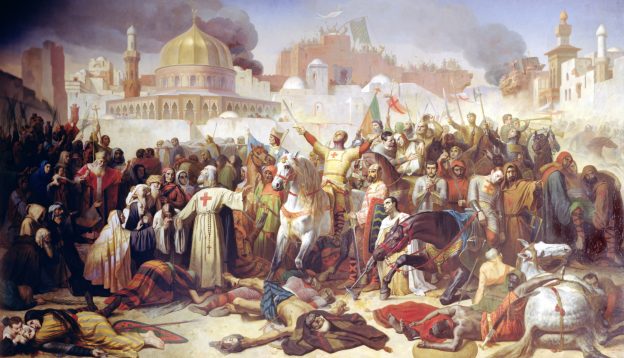The Council of Clermont, which launched the Crusades by declaring pilgrimage to Jerusalem to be the ultimate penance, convened in France on this date in 1095. More than 300 clerics and aristocrats attended in response to a call from Byzantine Emperor Alexius I Comnenus for military assistance against the Seljuk Turks who had occupied Palestine and were attacking the eastern provinces of the Byzantine Empire. Pope Urban II called on French knights to make war on the Turks, and his words, “God wills it,” became the battle cry of the crusaders. During the First Crusade, Jews almost single-handedly defended Haifa against the Christians, withstanding a siege for a full month, and fought alongside Muslim soldiers in defense of Jerusalem. The Crusades would preoccupy Western Europe for two centuries and bring death to thousands of Jews (and tens of thousands of Muslims) in Europe as well as the Middle East, and anti-Semitic persecutions that would last for half a millennium. Several Jewish scholars wrote eyewitness accounts of the early Crusades.
“[C]ruel foreigners, fierce and swift, Frenchmen and Germans . . . put crosses on their clothing and were more plentiful than locusts on the face of the earth.” —Eliezer Ben Nathan (1190-1170)


























